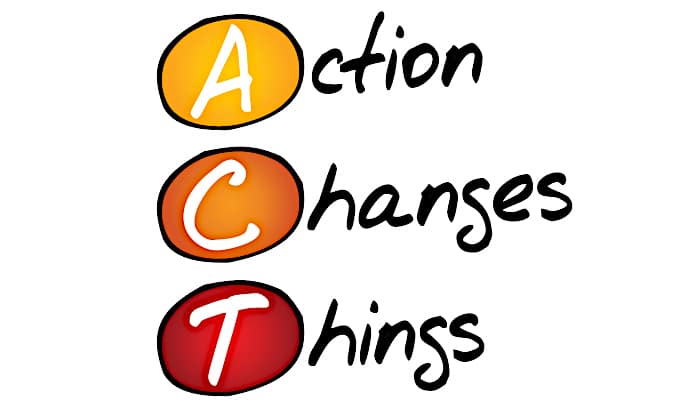Five Holiday Sobriety Tips
Detox and Addiction Treatment Bay Area, Sacramento, Central Coast
Plan Ahead for Sober Holidays
1. Maintain a Strong Intent to Stay Sober.
2. Avoid people, places and things that bring memories of previous drinking or drugging.
3. Maintain emotional balance; mindfulness is very helpful.
4. Whenever possible, limit exposure to stressful or triggering situations.
5. Have fun – sober! Begin to find happiness in your life without drinking or drugging.
Sober holidays are especially challenging for recovering alcoholics and substance users. For many reasons – holidays are difficult for everyone.
At our detox and addiction treatment rehabs in the Bay Area, Sacramento and Monterey – we see patients experiencing significant holiday stress around holidays.

There is a long-standing tradition and history of holiday over-indulgence involving food and alcoholic drinks.
Hundreds of years of alcohol-fueled holiday celebrations are a part of our history. For staying sober during the holiday season – those in recovery encounter not just a current holiday drinking culture.
There were all kinds of entertainments on offer over the Christmas period. Drinking alcohol was the most popular of all. And the fact that merry-making could easily get out of hand is attested by the common custom of lords paying special watchmen to guard their estates in case of riots. A record from an estate near Saint Paul‘s Cathedral in London tells us that watchmen were set from Christmas Day to Twelfth Night and that these men were recompensed by ‘a good fire in the hall, one white loaf, one cooked dish, and a gallon of ale [per day]’. Even if drinking such large quantities was relatively common and the ale weak, with four and a half litres of ale per watchman it is a wonder they themselves did not get a bit rowdy.
A Medieval Christmas

Sober Holidays Tip 1
Understand Holiday Stress and Relapse Triggers
· For the average person – holidays can create enormous stress and emotional upset.
· For the newly sober and those in recovery – holidays can create overwhelming emotional upset or even relapse.
· With planning and a determined resolve, holiday stress and upset can be greatly decreased.
· Just possibly – this year could be an enjoyable holiday.
· Or at least, not so upsetting. We look for progress, not perfection!
How can we enjoy holidays and safely navigate the holiday season – enjoying time spent with friends and family – without feeling triggered to drink or drug?
When recovering from addiction – it is important to have a relapse prevention plan in place at all times – but especially during major holidays.
Holidays bring out conflicts of all kinds that we tend to ignore most of the year. Sources of holiday stress include unresolved family relationships and interactions, financial stresses, relationship stresses – or lack of relationship and holiday loneliness.
For example, a recent poll by the American Psychological Association found that 61% of U.S. adults identified money as a significant stressor, second only to the 66% of those employed who said work was the leading source of stress. And a LendingTree survey found that 48% of U.S. consumers are dreading the holiday season and its related costs.
The added stresses of the holidays encourage many individuals to substance abuse as well as alcohol abuse.
Groups including veterans and first responders often have additional sober holiday challenges.
Whether struggling with addiction or not: Holidays can activate triggers that lead to drug use and alcohol abuse.
While alcohol or drug use may seem to help with stress at first – alcohol or drug use is never a solution and only makes things worse.
Back to top
Recovery Happens Counseling Services Outpatient Rehabs
Call Admissions 866-303-6275 for confidential questions and assistance.
Same Day Detox Admissions · Dual Diagnosis Rehab Treatment
Outpatient Addiction Rehabs | Mental Health Care | Virtual IOP
We work with EAP and Union Programs and most insurance.
TriWest in-network; VA Community Care Provider | Kaiser Preferred Provider

Sober Holidays Tip 2:
Uncover Holiday Myths and Adjust Expectations
Many Americans experience a collective cultural ‘mythology’ during the month of December. Unrealistic expectations can be an especially serious issue for those in addiction recovery. It is important to know, understand and avoid potential stumbling blocks before encountering them.
Learn to recognize your personal holiday stress triggers – including financial pressures, frustrations or personal demands – so that you can practice mindfulness and deal with the stresses before they lead to a meltdown.
Takeaway: LIFE HAPPENS
• Frustrations will occur – even in holiday seasons.
• Don’t sweat the small stuff.
• And for larger issues – be patient with yourself.
• Work on mindfully handling issues.
Common Holiday Myths and Unrealistic Beliefs
Myth #1: Holidays are a time of joy – and everyone is happy.
Myth #2: Everyone can eat and drink alcohol and abuse substances as much as they want and never suffer ill effects.
Myth #3: Frustrations and exhaustion due to the holidays do not exist. Children will not cry or act up, significant others will finally understand us completely, we will not run out of tape and wrapping paper at the worst possible moment – and we will get that last parking space.
Myth #4: I can interact with family and relatives that always upset me. But due to a ‘Christmas Miracle’ – there will be no ill feeling and all long-standing issues will be happily resolved.

Recovery Happens Counseling Services Outpatient Rehabs
Call Admissions 866-303-6275 for confidential questions and assistance.
Same Day Detox Admissions · Dual Diagnosis Rehab Treatment
Outpatient Addiction Rehabs | Mental Health Care | Virtual IOP
We work with EAP and Union Programs and most insurance.
TriWest in-network; VA Community Care Provider | Kaiser Preferred Provider

Sober Holidays Tip 3:
Stress Reduction with Conscious Breathing
Holistic health advocate Dr. Andrew Weil believes Conscious Breathing can be a useful tool for achieving a calmer mental or physical state.
As the Zen Buddhist monk Thich Nhat Hanh said:
“Feelings come and go like clouds in a windy sky. Conscious breathing is my anchor.”
When feeling stressed during the day – take two minutes for a Conscious Breathing Break. The 4-7-8 Breath (also known as the Relaxing Breath) is a quick and portable stress antidote. It puts the practitioner in a relaxed state almost immediately. As Dr. Weil demonstrates in the video below – it takes almost no time, requires no equipment and can be done anywhere.
Dr. Andrew Weil Explains How to Do his 4-7-8 Breathing Technique

Recovery Happens Counseling Services Outpatient Rehabs
Call Admissions 866-303-6275 for confidential questions and assistance.
Same Day Detox Admissions · Dual Diagnosis Rehab Treatment
Outpatient Addiction Rehabs | Mental Health Care | Virtual IOP
We work with EAP and Union Programs and most insurance.
TriWest in-network; VA Community Care Provider | Kaiser Preferred Provider

Sober Holidays Tip 4:
Coping With the Holiday Season Alone
Spending time alone during holiday season is not a personal failure. Being alone for the holidays is a statement about the current environment – not your ability or your worth.
For many, spending Christmas alone will be the safest option to avoid COVID-19. Although some will choose to travel during the holidays – others will determine that holiday travel is still not safe this year.
Let’s look at some steps to make spending holidays alone this year more enjoyable.
Ways to Combat Holiday Loneliness
• Self-compassion, gratitude, and positive affirmations are important for emotional balance.
• Remember those annoying relatives? You won’t be spending time with them. (Bonus!)
• Keep in touch with friends and family. Use video calling, Zoom or phone calls.
• Create new traditions – virtually.
• Drive-by Christmas light viewing is fun!
• Indulge in Self-Care.
• Attend Online Groups and Meetings.
• Listen to Recovery or Inspirational Podcasts
• Focus on Healthy Routines and Nutrition.
• Create a daily activities list and keep it as full as possible.
• Create a Gratitude List.
• Consider game nights, bad sweater contests, white elephant gifting or caroling – in-person or via video calls.
• Try to spend at least 10 minutes outside daily.
• Consider becoming a plant parent. Why Indoor Plants Make You Feel Better
• If you have SAD, invest in a Light Therapy Box. Best Light Therapy Lamp, Reviews
• Try winter celebration alcohol-free drinks.
• Reach out if you need help. If substance abuse is an issue, call us at 866-303-6275

Sober Holidays Tip 5:
Taking Care of Your Emotional Health
Healthy Ways to Cope with Stress
Feeling emotional and nervous or having trouble sleeping and eating can all be normal reactions to stress. Below are some healthy ways you can deal with stress.
Take breaks from watching, reading, or listening to news stories, including those on social media. It’s good to be informed but hearing about the traumatic event constantly can be upsetting. Consider limiting news to just a couple of times a day and disconnecting from phone, tv, and computer screens for a while.
Take care of yourself. Eat healthy, exercise, get plenty of sleep, and give yourself a break if you feel stressed out.
∙ Take deep breaths, stretch, or meditate.
∙ Try to eat healthy, well-balanced meals.
∙ Exercise regularly.
∙ Get plenty of sleep.
∙ Avoid excessive alcohol, tobacco, and substance use.

Make time to unwind. Try to do some other activities you enjoy.
Talk to others. Talk with people you trust about your concerns and how you are feeling. Share your problems and how you are feeling and coping with a parent, friend, counselor, doctor, or pastor.
Connect with your community or faith-based organizations.
Avoid drugs and alcohol. These may seem to help, but they can create additional problems and increase the stress you are already feeling.
Recognize when you need more help. If problems continue or you are thinking about suicide, talk to a psychologist, social worker, or professional counselor.

Sober Holidays: Resources for Handling Holiday Stress
CDC Guide – Taking Care of Your Emotional Health
Coping With Loneliness During the Holidays
APA Holiday Stress Resource Center: What you can do to avoid or minimize holiday stress inducers
Sober Holiday Tips – Mindfulness
Veterans: Tips for Staying Sober Holidays

Recovery Happens Counseling Services Outpatient Rehabs
Call Admissions 866-303-6275 for confidential questions and assistance.
Same Day Detox Admissions · Dual Diagnosis Rehab Treatment
Outpatient Addiction Rehabs | Mental Health Care | Virtual IOP
We work with EAP and Union Programs and most insurance.
TriWest in-network; VA Community Care Provider | Kaiser Preferred Provider

Relapse Prevention Plan
It is important to remember: With a relapse prevention plan – you don’t have to relapse to work it.
View/Download Relapse Prevention Plan
The main things we are trying to identify are high-risk situations and how to manage them. We all have “self-talk” in our head and it can lead to positive or negative thinking. In a relapse situation, the self-talk can be negative feelings and emotions. Negative self-talk can lead to unwanted and negative actions and relapse.
Your relapse prevention plan will help build critical thinking and avoidance strategies – so you can stay focused on achievable goals without activating your stressors.

Relapse Prevention Daily Check-in
- Desire – What are my intentions for the day? What do I plan to get out of this day?
- Urge – Am I craving my substance of choice? Is my schedule today manageable enough to keep my stress level low? Do I plan on doing anything that would sabotage my recovery or the goals in my treatment plan?
- Feelings and Emotions – Check in with yourself and your sponsor about how you are feeling emotionally. If your sponsor is not available to talk with, find someone you trust so you can process and understand the feelings and emotions you are having that day. It is important in relapse prevention to write your feelings on a piece of paper, in a journal or on your computer. Writing them out will give you time to think and also help with the processing of your feelings. Processing and understanding your feelings might be hard at first, however, you will begin to feel better when you start to identify exactly what it is you are experiencing emotionally on a daily basis.
- Action – How are you taking positive action in your relapse prevention plan? How are you building a better quality of life for yourself so you can move forward in a positive direction?
- Think – Always think about how you react to the choices and actions of your daily life. Journaling will help you identify strategies to build a positive outcome and how to avoid triggers that once held you back in life. Remember, you can’t think your way out of problems that you behaved your way into. You must look at your behaviors and understand the way they play out in your new life of recovery.

Recovery Happens Counseling Services Outpatient Rehabs
Call Admissions 866-303-6275 for confidential questions and assistance.
Same Day Detox Admissions · Dual Diagnosis Rehab Treatment
Outpatient Addiction Rehabs | Mental Health Care | Virtual IOP
We work with EAP and Union Programs and most insurance.
TriWest in-network; VA Community Care Provider | Kaiser Preferred Provider
Bay Area, Sacramento and Central Coast Dual Diagnosis Alcohol and Drug Rehabs

New Start Recovery Solutions
Residential Detox and Addiction Treatment
Concord, Sacramento and Monterey
Confidential Consultations, Questions or Admissions
Call 866-303-6275
We Work with EAP and Union Programs and Accept Most Insurance
Kaiser Preferred Provider (Addiction Treatment)
VA Community Care Provider In-Network with TriWest
• Each patient is evaluated by Recovery Happens Counseling Services staff and receives a biopsychosocial assessment.
• Each patient receives an individualized treatment plan.
• Recovery Happens Counseling Services is a VA Community Care Provider; in-network with TriWest.
• Our trauma-informed dual diagnosis treatment is effective for PTSD, depression, anxiety and more.
• Military and Veteran PTSD Treatment Programs
• Treatment Programs for First Responders, Union Members and Professionals
Please call our Admissions for more information, or feel welcome to Contact Us.
We Accept Most Insurance
In-network with TriWest

Your Life Awaits – Make a New Start Now

Recovery Happens Counseling Services
Questions? Call Admissions at 866-303-6275
This article first appeared on https://www.newstartrecoverysolutions.com/sober-holidays-five-tips-2022





 Sacramento Outpatient Drug Alcohol Rehab
Sacramento Outpatient Drug Alcohol Rehab